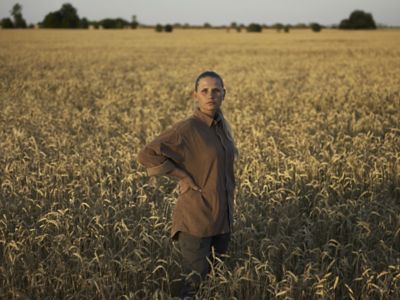Position On Climate Change
Of the many challenges agriculture faces today, the impact of a changing climate – from extreme weather events and wildfires; to melting glaciers; to compromised plant, animal, and marine habitats – may be one of the greatest that we face in this lifetime. Increasingly, farmers around the world are contending with shifting weather patterns; unpredictable water supplies; and threats from diseases, weeds and insects.
While producing a healthy food supply for the world, global agriculture does contribute to those climate change challenges. But farmers have a long history of overcoming challenges which is why we are optimistic about the future. We know there is a way forward for sustainable climate change mitigation that enables farmers to meet the demands of a growing population and secures the economic future for the vast majority of the world’s population who depend on agriculture for their livelihoods.
We are an industry with the ability to understand and react to global market demands and to harness science, technology, and innovation to reduce emissions and optimize sustainable agriculture.
We are a company of more than 22,000 passionate and dedicated employees with the expertise and resources to make measurable contributions to climate change.
To that end, we are a convener, working with farmers and food producers, and those outside our industry to listen, learn, and partner on the best solutions.
We are integrating consumers into the food system as informed and responsible partners. Enlightened and engaged consumers can help drive collective action across the food chain to ensure abundant, affordable and nutritious food for all in the face of the challenges of climate change.
We believe we can do more. We are making long-term commitments to accelerate progress, and that means supporting our entire food system with more economically and environmentally sustainable ways to produce and consume food.
To achieve meaningful impact, Corteva is working in the following ways:
The foundation: reduce our own footprint.
We, along with our production partners, are seeking ways to reduce emissions, minimize waste, conserve water and lower energy consumption at our sites.
We have established a climate strategy commitment and report the results openly and transparently.
Pursue areas of greatest innovation with farmers, large and small.
Farmers can lead the way, and we will continue to support them through digital tools that enable precision agriculture, new seed technology, and the next generation of crop protection products.
We are joining forces with partners to increase resilience to climate change. These partnerships will improve the economic livelihoods and nutrition of smallholder farmers; improve rural communities through increasing access to education, empowering women, increasing food security; and improve rural infrastructure and connectivity.
Nurture the essentials of growth – soil health and water.
Healthy soils produce more food, promote biodiversity, hold moisture better, and are less prone to erosion and nutrient loss.
We promote land stewardship and innovate to support the continued capacity of soil to function as a vital living ecosystem that sustains plants, animals, and humans.
We help farmers apply the right amount of fertilizers at the right time and with the right methods to improve plant health and protect the environment.
We also partner with farmers to optimize on-farm water use, promoting water stewardship and greater resource efficiency.
Reduce footprint but go beyond what’s expected – climate positive.
Agriculture is working to shrink its role in the emission of greenhouse gasses.
We are seeking ways to reduce our impact and providing tools and incentives for our customers to do the same.
We champion climate positive agriculture, utilizing carbon storage and other means to remove more carbon from the atmosphere than we emit.
We can achieve this without sacrificing farmers’ productivity or ongoing profitability. The Corteva Agriscience Climate Positive Leaders Program recognizes farmers across the world for advancing this movement.
We know we can’t do this alone. We engage with multiple stakeholders and partners around the globe who have innovative and actionable ideas to help safeguard the health and well-being of our planet and its people.
Climate change impacts every one of us today as well as future generations. We believe that our industry can continue to improve, and we work with farmers and other key stakeholders to lead that change. We are committed to working together towards a solution. By doing more to address climate change today, we are fortifying our ability to grow food, grow progress and build a sustainable industry that will help humanity thrive for generations to come.





